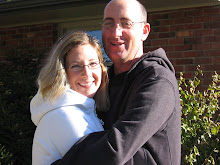Patrick said it was in evitable and perhaps he is right. We came to a stage in the construction process that seems for the moment to have created a rift in our once happy cross-cultural workcamp.
My fellow workcampers and I had been warned at orientation that actually doing work at the camp would prove difficult. Women in Burundi do not do construction projects. The culture is still very traditional in many ways. When I first arrived here I was perplexed by the seeming lack of women. You can walk past 50 men on the street and see perhaps one or two women amongst them (usually the women walk together). I have asked several Burundians, "Where are all the women" and they usually laugh and say at home taking care of the children. Even at church services the pews are mostly men. Domestic duties are not a part-time job. I have not entered a household yet that has running water. Electricity is not common either (we attended a lovely birthday celebration in the dark). Where we are staying, which I thought was a bit of a dive until I came to understand the context of living conditions here, we have indoor plumbing and electricty. There is no stove though and all food is prepared over hot coals in the kitchen or outside. This is standard for most households. Meals take 3 hours or so to prepare. When we sit down to a dinner and see 5 pots of food present I know that whoever is cooking for us that evening went all out.
Anyway, all that to say women have their hands full with big families and the many challenges providing for them entails. They are not out building clinics. For the most part we have been in charge of what I call "logistics". Forgive me if I already wrote abou this. Up until yesterday we kept relatively busy moving dirt, sand, wood and heavy stones around the worksite. Happily the clinic is at the point where its bare brick walls can be sealed with a plaster-like substance. All of a sudden our work force came to a standstill to watch one man splatter the stuff on the walls with a trowel. I thought this was the case because we had a lack of tools so I asked the young man who has been helping translate between Kirundi and English for us if we could buy more trowels so that everyone might be able to work. This suggestion was not met with approval. The skilled Burundian workers had suffered our unorthodox behavior long enough and for some reason this really irked him. He challenged me to do the work myself. I tried to explain that this was not the point. I did not want to do it by myself I wanted us all to work together.
Shannon, Bethany and I have swallowed this now. We have nothing to prove, the point is to see the clinic completed and with or without our direct involvement it is making slow but steady progress. In the meantime, we have hatched a new plan to keep us occupied and productive. The clinic owns a swath of land behind it that Dr. Alexia hopes to one day build a hospital on. For now it is covered in weeds and litter. At the far end of the property is a restaurant. It is a very small wooden shack with an outdoor area for food preparation-this is where our daily lunches come from. We have asked and been granted permission to dig up the land to make it ready for cultivation. We thought that by converting the unused land into garden space we could provide an extra source of income/food for the patients of the clinic and provide fresh food for the restaurant. Alexia thinks this is a very good idea so today we will start to hoe. We will have to figure out how to make a bamboo fence and a reliable system for irrigation. If anyone has any suggestions for gardenting in East Africa I would love to hear them.

It's too bad that you have to be opposed just because you are a motivated American woman; but it's like Patrick said--the inevitable culture clash. You have my admiration and prayers.
ReplyDeleteAny progress on the garden, Visa extension, or flight plans' changing, Sarah?